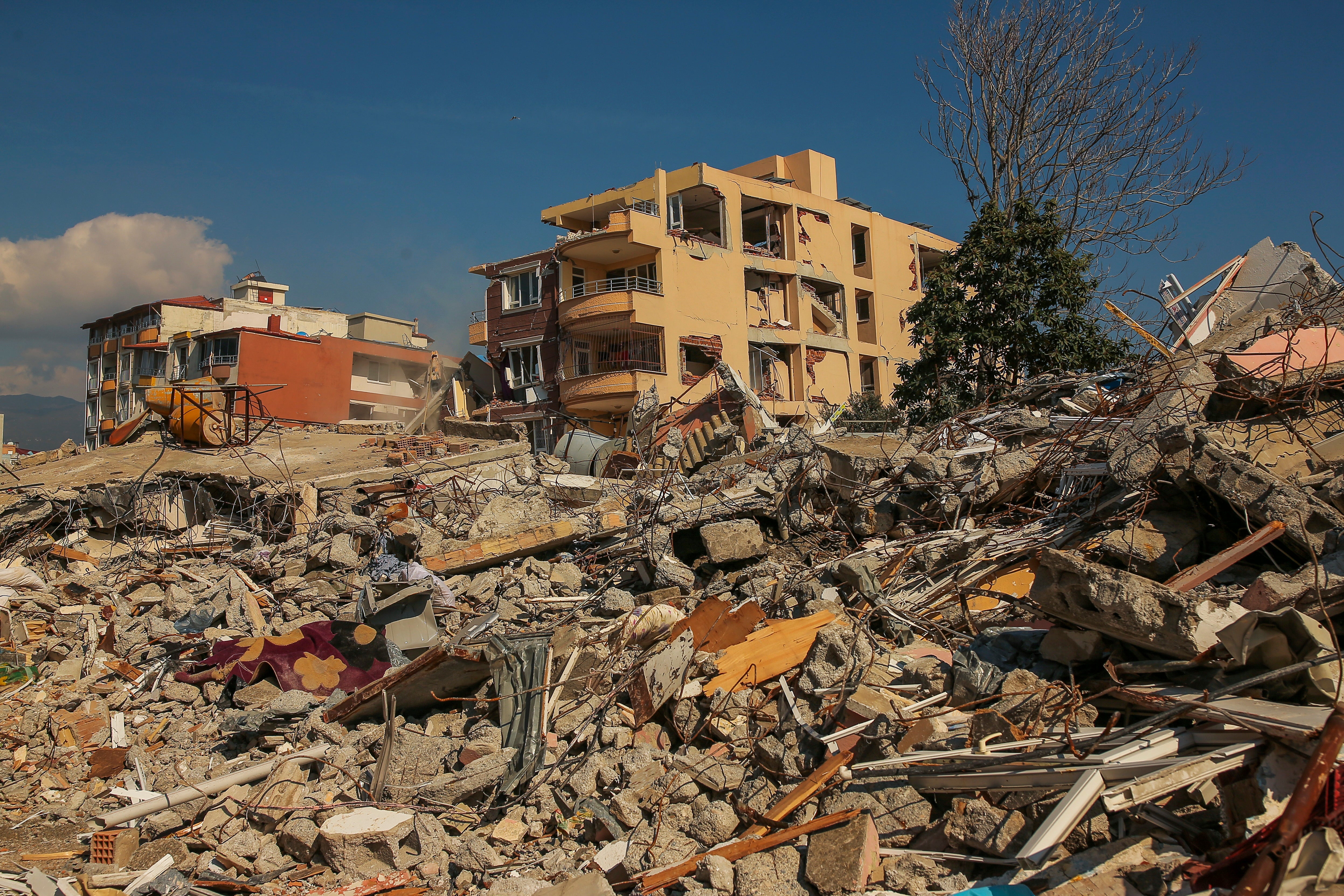Turkey hit by another earthquake leaving one dead and 69 injured
A magnitude 5.6 earthquake hit the town of Yesilyurt in Malatya province
Your support helps us to tell the story
From reproductive rights to climate change to Big Tech, The Independent is on the ground when the story is developing. Whether it's investigating the financials of Elon Musk's pro-Trump PAC or producing our latest documentary, 'The A Word', which shines a light on the American women fighting for reproductive rights, we know how important it is to parse out the facts from the messaging.
At such a critical moment in US history, we need reporters on the ground. Your donation allows us to keep sending journalists to speak to both sides of the story.
The Independent is trusted by Americans across the entire political spectrum. And unlike many other quality news outlets, we choose not to lock Americans out of our reporting and analysis with paywalls. We believe quality journalism should be available to everyone, paid for by those who can afford it.
Your support makes all the difference.Turkey has been hit by its third earthquake in just three weeks after twin earthquakes killed over 50,000 people.
A magnitude 5.6 earthquake hit the town of Yesilyurt in Malatya province, Turkey’s disaster management agency said.
One person has reportedly died as a result of a factory collapsing in Kahramanmaras, while 69 are injured and an unknown number of buildings have collapsed, according to Disaster and Emergency Management (AFAD) President Sezer.

A building collapsed in front of the Provincial Directorate of Environment, Agriculture and Climate Change and some vehicles were left under the rubble, according to reports.
A four-story building where a father and daughter were trapped is also reported to have collapsed.
Yesilyurt’s mayor, Mehmet Cinar said the pair had entered the building to collect belongings.
Television images showed the man being carried on a stretcher into an ambulance, while rescue teams were trying to make contact with his daughter inside the damaged building.
The earthquake was also felt in surrounding provinces, including Kahramanmaraş, Gaziantep, Adıyaman and Şanlıurfa.
Search and rescue teams have been dispatched to the region.
Malatya was among 11 Turkish provinces hit by the magnitude 7.8 earthquake that devastated parts of southern Turkey and northern Syria at the start of February.
More than 173,000 buildings have been damaged, leaving nearly two million residents homeless, according to government data.
The affected regions have been hit by around 10,000 aftershocks, AFAD said.
A 6.4 magnitude earthquake struck the Turkey-Syria border region two weeks after the initial earthquake. Turkey’s state-run Anadolu Agency said the quake was felt in Syria, Jordan, Israel and Egypt.
Turkish president Recep Tayyip Erdogan has pledged to rebuild housing within one year.
Investigations have been launched against more than 600 people in relation to buildings that collapsed in the earthquakes.
Justice Minister Bekir Bozdag said 184 of the 612 suspects had been jailed pending trial. Those in custody include construction contractors and building owners or managers, he said in televised comments from a coordination center in Diyarbakir in southeast Turkey.
“The detection of evidence in the buildings continues as a basis for criminal investigation,” Bozdag added.
Experts have said many toppled structures were built with inferior materials and methods and often did not comply with government standards. Opposition parties have accused President Recep Tayyip Erdogan’s administration of failing to enforce building regulations.
The mayor of a town close to the epicenter of the earthquake was detained as part of an investigation into collapsed buildings, the Cumhuriyet newspaper and other outlets reported Saturday.
Okkes Kavak, who heads the district of Nurdagi in Gaziantep province and is a member of Erdogan’s Justice and Development Party (AKP), is said to have failed to ensure construction inspections were carried out.
“This will continue for a long time… we expect these aftershocks to last for at least two years,” AFAD General Manager Orhan Tatar said in a media briefing in Ankara.




Join our commenting forum
Join thought-provoking conversations, follow other Independent readers and see their replies
Comments